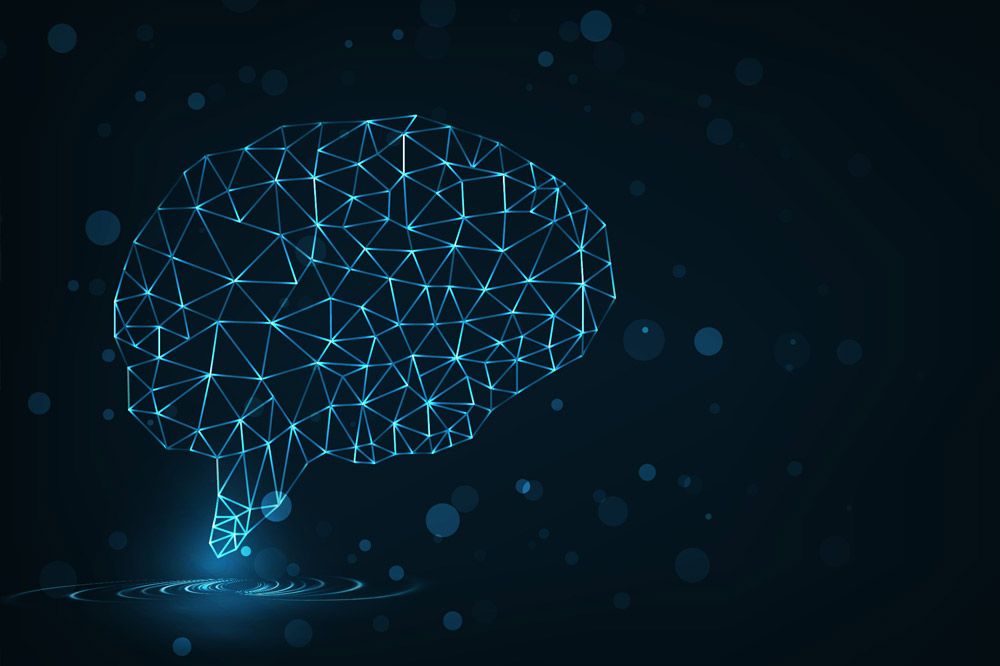
The Limitless Brain – Part 2: How to achieve it
In part one of this series we explored what our brain is capable of. This entailed looking into brain anatomy, exceptional cases of intelligence and the mathematical possibilities behind the scope of our potential brain power. This article will continue to investigate the notion of heightened brain activity and outline ways in which you can boost your own focus, mood and productivity levels.
As the brain is an extremely complex organism, it would be naive to say that X equals Y when talking about actions and outcomes. All these suggestions are based on subjective experience and may work for you. However, brain health goes hand in hand with overall holistic health. By following the “how to” guide in this article, you’ll definitely put yourself on the road to improved wellbeing.
Background – how I stumbled upon these techniques
I’m not a neuroscientist. I’ve said it once and I’ve said it before that it is incredibly important to stay well within your jurisdiction when it comes to making claims about improved intelligence. None of these methods have objective data behind them measuring brain waves and/or IQ scores, however they have helped myself, friends and clients boost their work output. The examples of how things work in this article are merely simplified versions of advanced scientific literature, so please take all the explanations with a pinch of salt.
I’ve always been fascinated by maximal human performance. By this, I mean optimising strength, intelligence, mood and spirituality. The more I looked to improve these factors the more I realised they were all beautifully intertwined and complemented each other. For each of these tips, I will explain how I came about the method, what impact they had on me and layman’s terms behind the basic physiology of what is going on. Now let’s begin.
1. Fasting
The benefits of fasting have been known for a millennia. Going without food can be very beneficial for your digestive system, hormones, energy levels and brain. Our brains favourite source of energy is glucose. Therefore, it would make sense to ingest a large amount of carbs if we want the brain to be firing on all cylinders. This being said, with high carb meals comes a hefty spike in Insulin. Insulin is a storage hormone that promotes recovery. Although this is ideal after a heavy training session, it’s not ideal with regards to cognition and can sometimes lead to feelings of drowsiness.
When we fast, we increase hormones called catecholamines? These are technically stress hormones and released as a way of putting the body into fight or flight mode. Chronic stress is never something we want to impart on our brain, however acute bouts of catecholamine production can promote alertness, concentration and critical thinking. This makes quite a bit of sense if you think about it primally. When being chased by a saber tooth tiger or other vicious predators, it helps to have your wits about you.
Modified fasting can be a great way of achieving the feeling of “Limitless” brain power. I use the term modified as there are non-solid foods you can use whilst not technically eating to potentiate the feelings of concentration, these being; coffee, coconut oil, bone broth, kefir and water with Himalayan salt. All are fantastic for consuming on an empty stomach whilst doing a task where you have to read, write or be mentally “in the zone”.
2. Discipline
How our brain functions are largely dependent on our production and sensitivity to neurotransmitters. Neurotransmitters are brain chemicals which impact our mood, energy and focus. When we “over-stimulate” the production of a neurotransmitter can de-sensitise receptors in the brain to this chemical. I always liken this to the first time you had an alcoholic drink and how the effects of alcohol are much more subdued the more you drink it. In layman’s terms, the more frequent the stimulus the less sensitive the receptor.
To be focused and alert we need the production of a neurotransmitter called Dopamine. Dopamine isn’t the only substance needed for concentration, but it definitely helps. If you start to become less sensitive to Dopamine, concentration will start to suffer.
We live in a very highly stimulatory environment. Information (spikes in Dopamine) are so easy to come by via the use of a smart phone, our brains are constantly bombarded with a sea of reward chemicals. This feels good in the short term but may have long term ramifications if abused. Constantly receiving these signals both trains our brain to seek the rewards but de-sensitises it to the effects in the process. What happens now when we try to sit down to read or write an article? We find ourselves seeking other stimuli and unable to focus on one thing. It’s both a chemical and habitual problem.
So how do we channel awesome levels of unbroken creativity and attention? Well we have to limit both our time doing hyper stimulating activities and place ourselves in an environment where the temptation of hyper stimulation is not there. So, in other words, have the discipline to not be on or around your smart phone. I personally like to limit my total screen time to 90 minutes a day and usage of social media apps such as Instagram and What’s App to 45 minutes a day. It’s difficult, but if you apply yourself and do it with discipline you’ll notice a huge improvement in both productivity and flow state.
3. Practicing a flow state and cues
Here’s a little cheat for getting good at something. The rules of mastery are the exact same for absolutely everything you look to do. This being “practice well and practice frequently”. Concentration is a skill, you get better at it the more you do it. You wouldn’t expect to go into the gym and deadlift 300kg on your first try and even if you did I highly doubt you’d do it optimally. Doing something to a high standard requires practice, patience and time. A flow state of mind where concentration and creativity seems effortless is exactly the same.
Not only is practice essential, so is the set-up of your environment. We humans are very sensitive to cues and association, therefore where you choose to do something is extremely important. My advice would be to never cross contaminate. It sounds a bit dramatic, but doing stuff where you do other stuff can be quite detrimental to your performance. Let’s look at an example.
Say you sit down at the table and eat breakfast in the same place every morning. Whilst you eat you have the TV on in the background and scroll through your morning social media feed. Even though you’re not aware of it, simply sitting in this position will make you crave seeking information through either the TV or your phone. Even if you’re not eating, I can almost guarantee that if you were to sit and do work at this station you would want to reach out for your phone or put the TV on. This doesn’t bode well for concentration and focus. If you want to really enhance your brain power, find a novel, peaceful place, free of distraction where you can apply the other aspects recommended in this article.
This theory was corroborated by a passage I came across in the book “Atomic Habits” by James Clear. He speaks about the exact same situation and how it contributes to productivity. To learn more about this topic, I’d highly recommend checking out his book.
4. Bi-neural beats
I became enlightened by accident. No seriously, about 3 years ago, unbeknown to myself I inadvertently unlocked levels of “flow state” I never thought were possible. Since then I’ve been using this discovery to write articles, learn anatomy, read books and sleep. So, what is this magical elixir to uncover super intelligence? It’s something called bi-neural beats.
The music is easily accessible on YouTube. There are hundreds of videos to choose from, varying from tranquil nature sounds to more specific tones and frequencies. I’d personally recommend choosing the one that sounds the most pleasing to you, however I’ve found anything with Alpha brain waves the most beneficial. It’s very important you use headphones whilst listening to them, and here’s why.
Our brains can function in different states that make us more suitable for specific tasks. This state is known as a frequency and can be manipulated by our environment. The frequencies are called Delta, Theta, Alpha & Beta or “Don’t take anti-biotics”, if you want a cheeky way to remember them. Think of them on a continuum from deep sleep all the way through to drinking red bull at an all-night rave; Delta being the lowest level frequency (REM sleep) and high Beta being the highest (highly arousing lights and music).
Alpha waves are known as the frequency of focus and creativity. What the music does is actually really smart. One earphone will play 8Hz whilst the other plays 12Hz. Our brain then resonates at a frequency that meets in the middle (10Hz) which is optimal for Alpha brain waves. This is why the headphones are a necessity.
If you have a task to do which requires concentration, being in a fasted state, water, coffee, Alpha brain wave music and eliminating distractions is an excellent set up to go for.
5. Meditation
Finally, we have meditation. You’ll be able to find other very useful articles on mindfulness and meditation on the Fit For Films website. I’d recommend reading them in conjunction to this to fully understand how to and why you should meditate. In this section, I’ll explain why mediation should be used in tandem with these techniques.
Everything in the universe is about balance. Think Yin Yang. If you stimulate, you must recover. Once you’ve recovered, you must then expend. More is not better, optimal is better. We must tap into brain power to create new ideas and information, so therefore we must replenish brain power through sleep and “mindful rest”.
Meditation is just like pressing the re-set button for our brain. It provides clarity, calmness and an exposure to different frequencies. If we revisit the brain wave theory from the previous point on bi-neural beats, true meditation allows us to tap into the Theta or even Delta state. In a world where we are commonly flooded with Beta brain wave stimulation, accesses lower levels of arousal is incredibly beneficial. Think of brain power as a bucket full of water. Every time you use creativity, concentration and focus it empties the water out of the bucket. Meditation would be filling the bucket again. However, each time you do this the bucket gets bigger and so does its capacity to fill.
Brain power is about practice, environment and achieving the right state. If you diligently follow the tips in this article, I’m sure you’ll start to realise what you’re truly capable of.

















